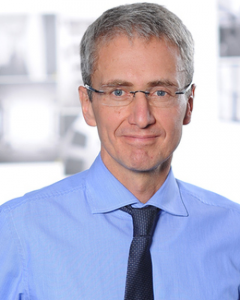Preface – Preceptorship Cologne
Dear Colleagues,
This report summarizes presentations that were given during the Lung Cancer International Preceptorship Conference that took place in Cologne, Germany, on February 1 and 2, 2018. The University Hospital of Cologne and the Center for Integrated Oncology Köln-Bonn jointly organized this conference, which was addressed to medical oncologists involved in the care of patients with lung cancer. This was not just an interdisciplinary exchange of experience of specialists from different Departments of the University Hospital and the Lung Cancer Group of Cologne through lectures and discussions on scientific and clinical topics, as the participants also had the opportunity to gain some practical insight during guided tours through the Molecular Pathology Unit, the Cyberknife Department and the Interdisciplinary Outpatient Clinic. In addition, in parallel, workshop participants could learn how to design trials on topics like EGFR TKI resistance, immunotherapy, brain metastases, and neoadjuvant therapy.
The lectures were organized in different sections with a strong focus on diagnostics and treatment of the different stages of non–small-cell lung cancer (NSCLC). Molecular pathology was a particularly important topic across almost all aspects of the program. In recent years, a multitude of studies has provided us with a range of innovative therapies, the application of which demands algorithms that support physicians in the shaping of their treatment decisions. Molecular pathology therefore has developed into a kind of gatekeeper in this process of designing therapeutic strategies for these patients. We hope that this summary of the Preceptorship will provide physicians with better understanding of the challenges linked to the care of patients with lung cancer.
Jürgen Wolf, MD, University Hospital of Cologne





